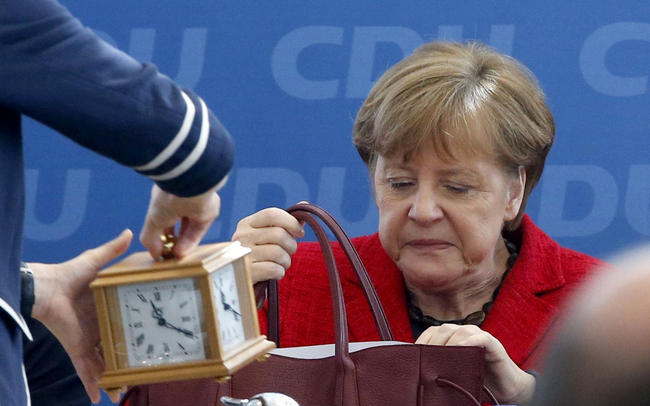A “black day” for Merkel
On the surprises at three state elections in Germany
State elections, held last Sunday in three German states of Baden-Wuerttemberg, Rhineland-Palatinate, and Saxony-Anhalt, yielded unexpectedly good results for a far-right populist party “Alternative for Germany” (AfD). These elections have become the first significant opportunity for German population to express their political will since the beginning of the migration crisis.
In Saxony-Anhalt, the AfD party won the second place with a result of 24.2 percent of the votes. In 15 constituencies, candidates of this party won direct mandates, ahead of the Christian Democrats. On party lists, first place in the land was still taken by the Christian Democratic Union (CDU) – 29.8 percent of the votes.
In Rhineland-Palatinate, AfD received 12.6 percent of votes; this is the first time the party made its way to the land’s parliament. The winner was the Social Democratic Party of Germany (SPD) with a result of 36.2 percent; the second came CDU – 31.8 percent of the votes.
In the elections in Baden-Wuerttemberg yielded AfD 15.1 percent of votes, ahead of the Social Democrats, who scored less than 13 percent. The victory for the first time went to the party “Alliance ‘90/The Greens” which got a result of 30.3 percent. CDU were the runners-up with 27 percent of the votes, which is 12 percent less than in previous elections.
The AfD leader Frauke Petry has commented on her party’s success: “The catastrophic policy of Chancellor Merkel has opened people’s eyes. This was the only reason that allowed us to successfully enter local parliaments, where our presence is measured by two-digit numbers. In Saxony-Anhalt, we have immediately become the second party in power.” During the past year, more than a million refugees have arrived to Germany.
Another triumphant were the Greens, winning an election for the first time – in Baden-Wuerttemberg they received over 30 percent of votes. This region has always been the stronghold of the governing Christian Democratic Union.
Meanwhile, German politicians have expressed concern about AfD’s. The results of these three state elections are a “warning shot” for the established parties, according to Norbert Lammert, chairman of the Bundestag. “Summary of the election results gives every democratic party much food for thought,” said Lammert on Sunday, at Phoenix TV channel.
In turn, the German Minister of Justice Heiko Maas regards the AfD’s success as a “challenge to democracy.” “The AfD’s result is more than simply a lesson,” dpa agency quotes him as saying.
In his opinion, all parties should now show those, who “protest and vulgarize,” the clear limits of acceptable policy. “We must expose ambiguous slogans through objective arguments,” said the Minister. In his view, “the fight against xenophobic propaganda remains the task that unites politicians and civil society the most.” “The silent majority no longer has the right to remain silent,” Maas says.
Analysts call this Sunday a “black day” for the ruling party – the resistance to immigration policy has undermined their influence on the political arena. Local parliaments directly influence the composition of the House of Representatives, which has the right to block the government’s proposals. Also, according to observers, the elections, which had covered about a fifth of all German voters, can be considered an important indicator of public attitude to Merkel’s politics in general.
Andreas UMLAND, German political scientist:
“It is not a red threat. These elections are a protest vote against immigration. Many AfD voters are previous nonvoters who have been mobilized this time. We do not have yet sociological analyses of the voting. But it is already clear that these elections are a heavy blow to Angela Merkel and the entire German political establishment.
“Presumably the elections will have political repercussions on the federal level. While the AfD is a pro-Kremlin party, I do not expect changes in Germany’s Ukraine policy. If there are signs for a connection between the AfD triumph and Russia the German position towards the Kremlin will become harder.”
Newspaper output №:
№16, (2016)Section
Day After Day





